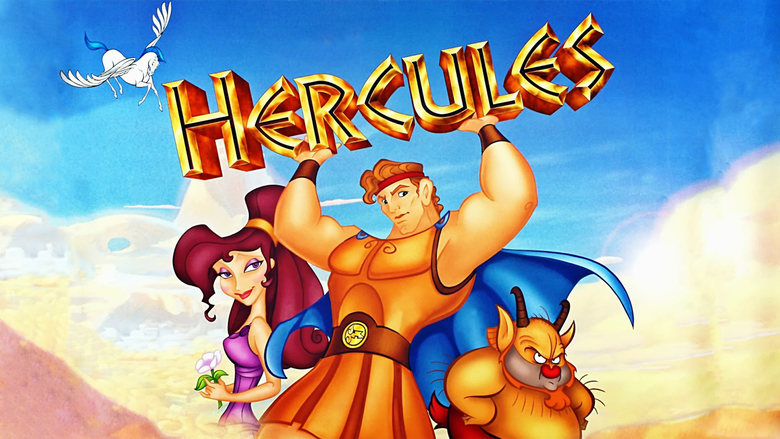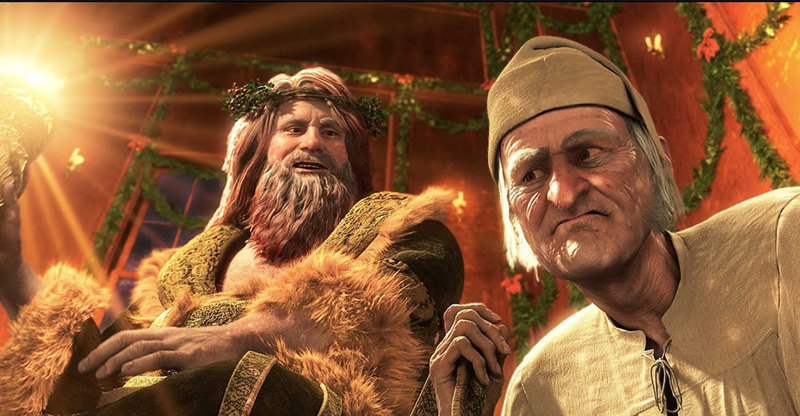I have great gaps in my education and cultural awareness, as if I’ve been oblivious because of constant texting—and I don’t even own a cell phone! I came to “Gainsbourg: A Heroic Life”completely clueless, having no idea who Serge Gainsbourg was, or what made his life heroic. An ironic title, perhaps? This was, after all, a French film with English subtitles.
But I watched anyway, and that first feeling/thought of cluelessness was replaced by scores of other adjectives—like “fluid,” “organic,” “stylish,” “sexy,” “smart,” “charming,” “surreal,” “jazzy,” and “engaging.” It turned out to be one of the best biopics I’ve seen in recent years.
Afterwards, I went to the computer to do a little research and discovered what I should have known all along: that Gainsbourg, born Lucien Ginsburg, was one of France’s cultural treasures, despite having a bad-boy streak as big as the stripe on a skunk the size of an elephant. His father was a pianist who didn’t make much money because the family was Jewish and living in Paris during the early years of the Nazi occupation, when all Jews had to wear a yellow star to mark them. His family fled France before the Holocaust and years later the restless young man trying to become an artist paid his bills by playing the piano in bars. His songwriting would elevate his career to the point where he was much in demand, and he would become both personally and professionally involved with Juliette Gréco (a popular French actress and chanson singer, whom I also had to Google), Jane Birkin (an English actress-model-singer who emerged during the Swinging London scene of the ‘60s), and Brigitte Bardot (French actress/sexpot, and the only one of this group I’d actually heard of).
Maybe it takes an artist to really bring another artist to life. “Gainsbourg” is written and directed by Joann Sfar (more Googling—how dumb this film has made me feel!), a New Wave French comic book artist who, like Gainsbourg, is partially inspired by his Jewish heritage. His work on this 2010 film shows a great sense of style and draws upon his artist’s background in order to render scenes that rely on animation, puppetry, and fantastic-surreal elements.
It doesn’t take Sfar long to capture Gainsbourg’s brashness and precociousness. We’re introduced to the lad as he arrives way early to make sure he’s first to get his Jewish star, and subtly talks smack to the Nazi occupiers by namedropping an SS officer he “knows” and walking past a line of Jews who are rightfully saddened and humiliated to have to obtain and wear those yellow stars each day. It was the German’s way of exercising control over them, but the scene shows quite effectively that there is a side to little Lucien who will not be controlled. It surfaces at home, too, where his father (Razvan Vasilescu) shouts at him for playing the piano poorly and we’re led to believe that the boy isn’t all that talented . . . until he gets the urge to play late at night. Driven by feeling and his own impulses, not by the notes, Lucien deftly plays up and down the keyboard.
Then there’s the young Lucien (Kacey Mottet Klein) who, at a life studies class, keeps turning around to look at the nude model that all the adults are painting, while he, the only child, is turned away to paint a still life with flowers. It’s easy to see how this young man, who struts his stuff among friends his own age, will use bravado as a way of compensating for feelings of self-doubt and physical features—a large nose and ears—that made him refer to himself as “Cabbagehead.” Still, he becomes the ladies man that he boasted he would.
What makes Lucien—who changes his name at the suggestion of a life-size caricature of himself, a surreal, “Harvey” or “Donnie Darko”-like presence who serves as his alter ego—attractive to women is the same thing that makes him attractive to audiences. He’s passionate about something—his art, to the point where it’s what matters more than anything—and passion is life as most people don’t live it. It’s exciting to be around people like that, even if you’re not their main focus. He’s also gifted, both musically and intellectually, and Henry Kissinger proved how sexy intelligence could be. And he’s funny, incorporating humor into his songs in ways that seem subtle as that early encounter with Nazis at the star line.
Even not knowing much about Gainsbourg, you know instantly that actor Eric Elmosnino—who won Best Actor at the César Awards and also at Tribeca Film Festival for his performance—is doing a damned good job playing him. He captures the man’s conflicting confidence and insecurity not by fluctuating between extremes, as a lesser talent might, but by finding ways to integrate them so that we see them co-existing. He manages to hold serious conversations with “himself” as caricature in scenes that could have seemed goofy as a Pee Wee Herman skit, he plays the different sides and eventual alcoholic decline of Gainsbourg with restraint, and he works well opposite the women in Gainsbourg’s life, never upstaging them but always a force. Of the women—Anna Mouglalis as Gréco, Lucy Gordon as Birkin, Laetitia Casta as Bardot, and Mylene Jampanoï as Bambou—Casta gets the most to work with, and she makes the most of it, capturing Bardot’s raw sex appeal in a refined package.
Biopics usually have a kind of formulaic feel to them, as if the writer and director are bound by the facts to tell a tale that feels constrained or cobbled together. But “Gainsbourg” has a flow to it where the facts and fantasy and artistic expression all blend seamlessly together, in order to create a brand new work of art. You get the feeling that Sfar wasn’t as intent on accurately telling a life story as he was using a life to tell a story. And the result is impressive.
“Gainsbourg: A Heroic Life” isn’t rated, but it has nudity, sexual situations, excessive drinking, constant smoking, and strong language.
Video:
“Gainsbourg” looks gorgeous in 1080p, transferred to a 50GB disc using AVC/MPEG-4 technology that leaves no ghosts, no banding, and no evidence of artifacting. What’s more, I saw no excessive use of DNR, though the picture itself is consistently sharp and includes only a slight amount of grain. Colors are beautifully rendered and the palette changes with the mood. There’s strong edge delineation, too, which provides a nice sense of 3-dimensionality. “Gainsbourg: A Heroic Life” is presented in 2.35:1 widescreen.
Audio:
Ahhh, the audio. Just as art and art design dominates visually, the original music by Olivier Daviaud and songs by Gainsbourg wash over you as you enjoy this film. The Doilby Digital 5.1 French lossless track is the one that brings everything nicely to life. Though I’d hesitate to call it a dynamic soundtrack, the distribution across the speakers is so natural and the sound so pure that you do feel it fill the room. Dialogue never suffers at the hands of the music, either. There’s a DTS-HD MA 2.0 French option as well, but I don’t see that one being used. The only subtitle option is English, and the disc is set to default with English subtitles. No adjustment necessary.
Extras:
In addition to a standard “making of” featurette (10 min.) that shows cast and crew talking about the film and the artist sketching the Gainsbourg home, a collection of sketches (40+) by Sfar rendered for the film, and the trailer, there’s a non-standard feature as well. On a bonus DVD we get “Joann Sfar (Drawings),” a film by Mathieu Amalric that runs just under feature length (44 min.) that takes a fly-on-the-wall approach for the most part and trails Sfar as he sketches everything from still lifes to animals. The fly listens, too, as we hear Sfar talking making observations and offering random thoughts that give us insight into his own art, his own passion, and help us understand how he used Gainsbourg to create another artwork.
Bottom line:
I love it when a film surprises me, and “Gainsbourg: A Heroic Life” won me over in the very beginning and held me for the full 122 minutes because of its quirky passion and intelligence.


